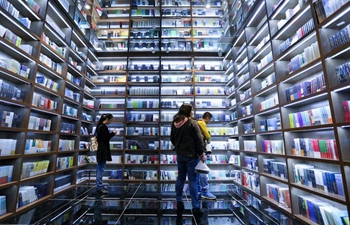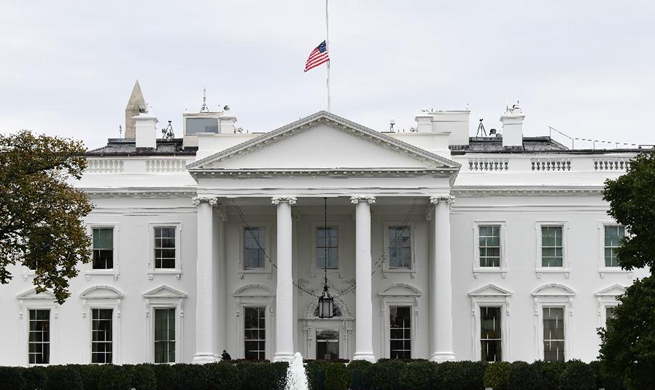BAGHDAD, Oct. 28 (Xinhua) -- Iraqi people on Sunday showed different attitudes towards just-approved partial cabinet of Iraqi Prime Minister Adel Abdul Mahdi.
On Oct. 24, Mahdi was sworn in as the new prime minister of Iraq after the parliament passed 14 out of his 22 cabinet members.
"We hope that the new government would start effective reform to improve services and security, decrease rampant unemployment and rebuild the war-torn country," Ahmed Hadi, 45 years old, a coffee shop owner, told Xinhua.
"The previous governments didn't do much to the Iraqi people. They only took care of their own interests," Hadi said as he was sitting in his coffee shop in Mansour neighborhood in western Baghdad.
"It's too early to judge the new government as they just started their duties last week," he added.
Ali al-Shimary, a lawyer, told Xinhua that "despite that Mahdi's cabinet list was based on the old quota system, we hope that they will succeed in running the country."
"The new government should focus on the security situation and make it as a top priority. Then they should start reforming and rebuilding the country," he said while sipping his tea in Hadi's coffee shop.
Shimary believes that if the government wants to make a difference, then the political parties have to support Mahdi and his cabinet in achieving their duties away from political wrangling.
"People's demands are so simple such as electricity, drinking water, job opportunities and ending corruption. Providing such demands would simply end the repeated protests against the former governments," he added.
Um Mustafa, 54, said she has three jobless sons with university degrees for several years.
"This is one of the government duties to solve this problem," she said as she was shopping at a grocery store in Mansour neighborhood.
Retired 66-year-old Abu Ali said that "the new government was supposed to be formed of technocrats and far from the influence of the political parties, but it's just like the previous governments based on ethno-sectarian quota system."
Abu Omer, 45, a teacher, said that Mahdi's governmental program is promising but political atmosphere isn't viable to be implemented.
"I noticed that part of Mahdi's program was focusing on sustainable development in Iraq's economy for the first time," Omer said.
"I believe that providing jobs and welfare to people will bring security and stability to the country," he added. "If that does not happen and things continue worsening, then I am afraid that Iraq will fall apart."
Abbas al-Ghanimi, a government employee, believes that political pressures forced Mahdi to derail from his promises of bringing independent and experienced candidates to the cabinet.
"It's a pity that Mahdi could not bring technocrat cabinet members because of pressures from the political parties, which led the parliament to approve part of his cabinet," Ghanimi said.
"However, we should be optimistic and hopeful that Mahdi would go on with his government under observation by the parliament which also has the duty to facilitate Mahdi's mission," Ghanimi added.














